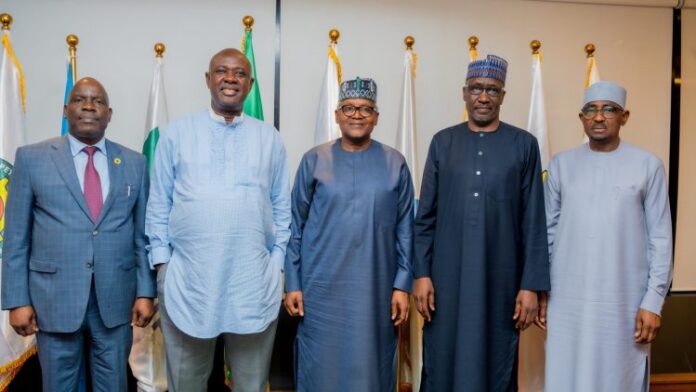The Nigerian National Petroleum Company Limited (NNPCL) and private petroleum marketers are set to commence lifting premium motor spirit (PMS) from Dangote Refinery, Nigeria’s first private refinery.
NNPCL will mobilize its trucks to the refinery today, while private marketers are already on ground waiting for a final go-ahead. The product lifting has been scheduled to commence tomorrow, September 15, 2024.
However, a pricing dispute between NNPCL and Dangote Refinery has stalled the resolution. NNPCL insists on a subsidy-compatible price, while Dangote wants a market and cost-reflective price. The latter would translate to a higher pump price, around N1,000 per liter, significantly higher than the current price.
“We are ready to begin lifting petrol once the pricing agreement is reached,” said Chief Chinedu Ukadike, Public Relations Officer, Independent Petroleum Marketers Association (IPMAN). “We believe that supply from the refinery will ease distribution challenges and long queues at filling stations.”
Ukadike noted that the ideal situation would be full deregulation of petrol pricing to allow for a willing-buyer, willing-seller market. “Nigeria can only get the best from the industry through a competitive market that would lead to efficiency and lower prices,” he said.
An oil and gas industry consultant, Mr. Henry Adigun, called on the Federal Government to intervene in the impasse and resolve the pricing issue. “It would be shameful for the country to continue petrol importation over price disagreement while it has a brand new refinery,” he said.
READ ALSO:Call me an APC mole, Wike dares PDP Govs, leaders
Acquire Agip’s Liabilities, Not Only Assets, Diri urges Oando
Alau Dam didn’t collapse, river overflow caused flooding, FG clarifies
Adigun explained that Dangote Refinery’s petrol appears more expensive than imported cargoes due to refining margin, loan financing margin, and other costs. “At production cost, Dangote petrol comes out at about N875 per liter, with the addition of other margins pushing it above the N1,000 per liter mark,” he noted.
Marketers support cost-reflective pricing, which aggregates all cost elements like crude oil, refining cost, storage, distribution, and marketers’ margins. “As a marketer, I support cost-reflective pricing because it forms part of deregulation that we have been talking about,” said a major marketer who pleaded anonymity. “It encourages transparency and accountability, enhances investment and development of infrastructure, and brings about fair competition among players.”

